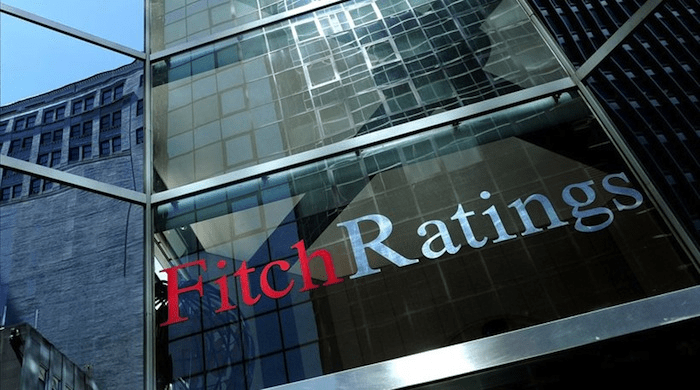Economist and Political Risk Analyst, Dr. Theo Acheampong has stated that government's decision to challenge Fitch and Moody's downgrade ratings is a step in the right direction.
This is because, in his view, there is, "African Premium or African sort of bias in the way the ratings are done.”
Speaking on Monday, February 7, 2022, on the Super Morning Show, he cited a statement made by the Finance Minister, Ken Ofori-Atta, sometime ago, to the effect that the risk premium that is put on African countries, are questionable.
Dr. Theo Acheampong also mentioned another instance, “if you take South Africa, at that point in time versus say Brazil, South Africa was paying 5.48% as premium while on their 10-year dollar-denominated debt and Brazil was doing 4.63% and then Argentina which has serially defaulted at the market, but you contrast that with a number of African countries including Kenya and the likes and consistently, you see the premiums that we pay is slightly higher than what ordinarily would have been the case for similar benchmark countries, some of whom you could even argue have worse fundamentals than a number of the African Countries."
"So I think the challenge by the Ghanaian Government on the Moody’s and Fitch ratings is the right thing do,” he said.
Fitch downgrades Ghana’s credit rating from B to B- with a negative outlook
International ratings agency, Fitch, has downgraded Ghana’s Long-Term Foreign-Currency Issuer Default Rating (IDR) to ‘B-‘ from ‘B’ with a negative outlook.
The downgrade of Ghana’s IDRs and Negative Outlook reflect the sovereign’s loss of access to international capital markets in the second-half of 2021, following a pandemic-related [COVID-19] surge in government debt.
Fitch in a report said “this comes in the context of uncertainty about the government’s ability to stabilise debt and against a backdrop of tightening global financing conditions. In our view, Ghana’s ability to deliver on planned fiscal consolidation efforts could be hindered by the heavier reliance on domestic debt issuance with higher interest costs, in the context of an already exceptionally high interest expenditure to revenue ratio.”
It pointed out that Ghana’s effective loss of market access to international bond markets increases risks to its ability to meet medium-term financing needs.
Despite the remarks that government's decision to challenge these ratings was a step in the right direction, Dr Acheanpong stated that it would not necessarily change the rating outlook itself considering the factors that went into the rating; including (Ghana's) deficits, current account balance, external liquidity gab, FX inflows, import cover, foreign exchange reserves, stability of banking system, etc.
Moody’s downgrades Ghana’s rating to Caa1; but with stable outlook
Subsequently, ratings agency, Moody’s also downgraded Ghana’s long-term issuer and senior unsecured debt ratings to Caa1 from B3 and changed the economic outlook to stable from negative.
The downgrade to Caa1 reflects the increasingly difficult task the government faces addressing its intertwined liquidity and debt challenges.
Recently, another ratings agency, Fitch, downgraded Ghana’s credit rating to B-, from B and economic outlook to negative, from stable.
“Weak revenue generation constrains government’s budget flexibility and tight funding conditions on international markets have forced the government to rely on costly debt with shorter maturity”, it said.
Moody’s estimates that interest payments will absorb more than half of the government’s revenue over the foreseeable future, which is exceptionally high compared to peers at all rating levels.
Government's response
Government challenged Fitch's ratings, pointing out inconsistencies in it.
Fast-forward, Fitch issued another rating which it indicated was "a correction of the rating action commentary published on 14 January 2022. It corrects the rating action on Ghana's senior unsecured debt, which Fitch has downgraded, not affirmed."
The Finance Ministry has also appealed against the downgrade of the country’s credit rating to Caa1, from B3 by ratings agency Moody’s.
It is citing the omission of key material information from the assumptions driving some of Moody’s forecasts and projections such as the 2022 budget expenditure control measures, the 2022 upfront fiscal adjustments and inaccurate balance of payment statistics as well as the appointment of a new primary credit analyst, only four weeks prior to such a major credit rating decision as the major reasons.
It also questioned the committee’s refusal to consider deferring such a monumental rating action until the analyst had enough time to more fully understand both the quantitative and qualitative aspects of the Ghana credit story.
Latest Stories
-
Kwame Boafo Akuffo: Court ruling on re-collation flawed
16 minutes -
Samuel Yaw Adusei: The strategist behind NDC’s electoral security in Ashanti region
18 minutes -
I’m confident posterity will judge my performance well – Akufo-Addo
30 minutes -
Syria’s minorities seek security as country charts new future
1 hour -
Prof. Nana Aba Appiah Amfo re-appointed as Vice-Chancellor of the University of Ghana
1 hour -
German police probe market attack security and warnings
1 hour -
Grief and anger in Magdeburg after Christmas market attack
1 hour -
Baltasar Coin becomes first Ghanaian meme coin to hit DEX Screener at $100K market cap
2 hours -
EC blames re-collation of disputed results on widespread lawlessness by party supporters
2 hours -
Top 20 Ghanaian songs released in 2024
3 hours -
Beating Messi’s Inter Miami to MLS Cup feels amazing – Joseph Paintsil
3 hours -
NDC administration will reverse all ‘last-minute’ gov’t employee promotions – Asiedu Nketiah
3 hours -
Kudus sights ‘authority and kingship’ for elephant stool celebration
3 hours -
We’ll embrace cutting-edge technologies to address emerging healthcare needs – Prof. Antwi-Kusi
4 hours -
Nana Aba Anamoah, Cwesi Oteng special guests for Philip Nai and Friends’ charity event
4 hours

